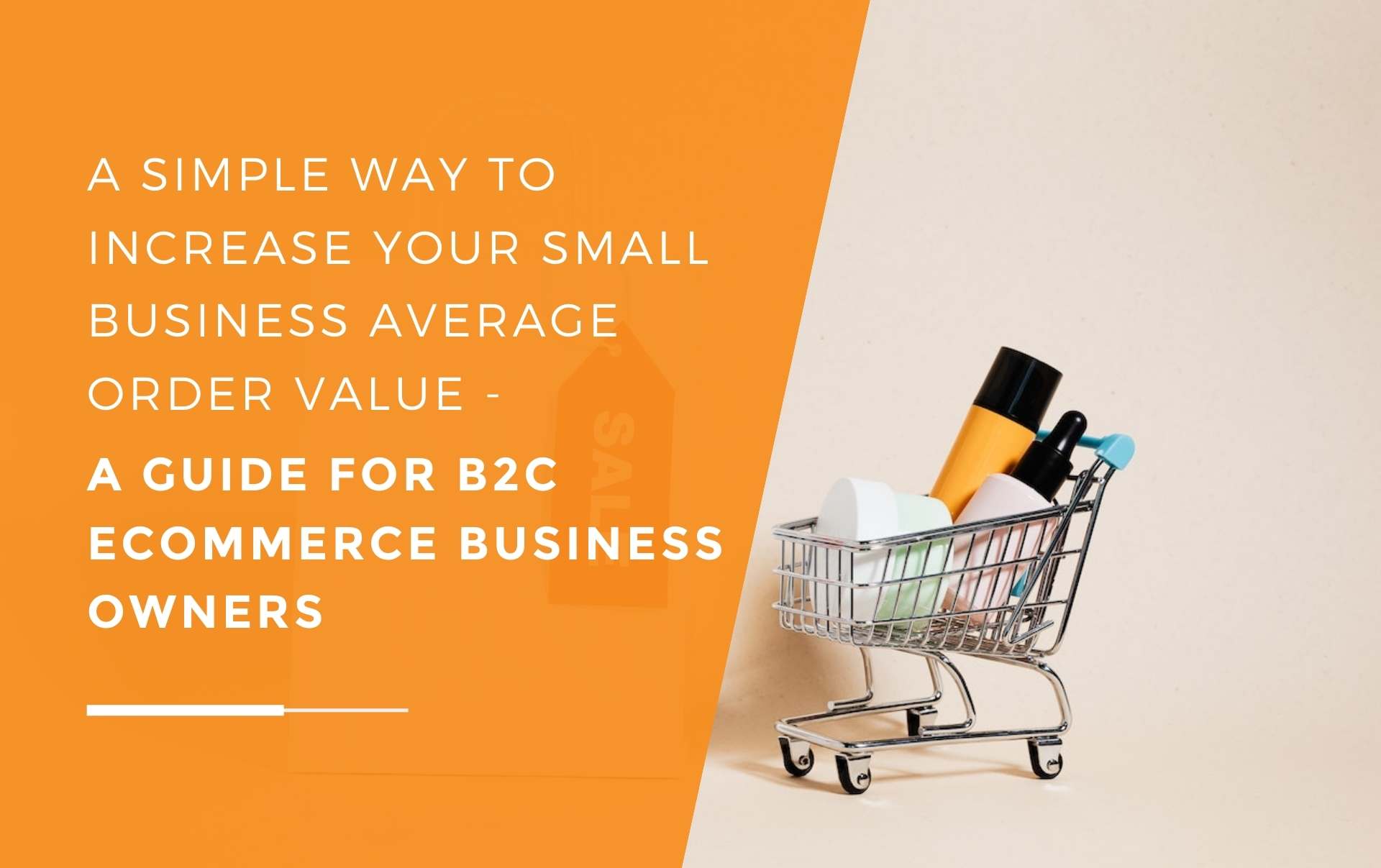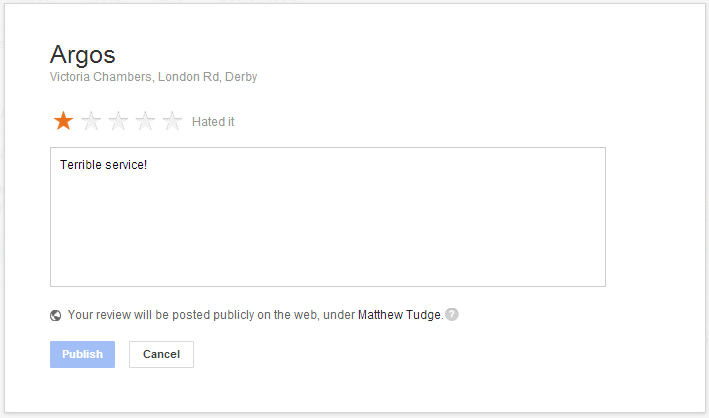AI Drives Rise In Fake Online Reviews: How To Safeguard Your Business Reputation Through Genuine Social Proof
by Will Williamson on 04-Oct-2023 12:00:00

Bogus reviews on Amazon, Google, websites, and other review hubs are unfortunately not a new phenomenon and were a problem for businesses and their customers long before ChatGPT was even a twinkle in a programmer’s eye. However, on Amazon over the past year, the number of fake AI-generated reviews has exploded by up to 400% compared to before the launch of ChatGPT in November 2022. As one of the world’s most respected customer review sites, this is a huge problem for Amazon and the B2B and B2C businesses that use the platform.
In August this year, Amazon announced the launch of a new customer review scanning service (also using an AI algorithm) to identify and remove false reviews created by generative AI, but even so, an estimated 8% of all Amazon reviews created in 2023 are now AI-generated, up from 2% in 2022.
What About Reviews On Google, Tripadvisor, And Other Sites?
Unfortunately, fake AI reviews are a problem on these sources too, and despite a stern position being taken by Google and others against the practice, it’s a difficult one to police. In July 2023, a Guardian journalist successfully submitted a credible-sounding but bogus AI-generated review to TripAdvisor relating to a hotel in Poland, which was accepted and published by the platform.
So, What Are The Implications Of This For Your Business?
Firstly, every business should be concerned about the rise in AI-generated reviews, and no one should assume that it is simply the B2C or online retail sectors that are affected. Everyone stands to lose from this should the practice become widespread and unchallenged. The reason for this is straightforward. Digital marketing is based on credibility, which is increasingly underscored through social proof – independent reviews, testimonials, and case studies posted on Google, Facebook, LinkedIn, and other sources.
As more and more sales decisions are made exclusively online, prospects increasingly seek out these reviews at the awareness stage, before finding anything else out about the business, and not solely at the decision stage before a final purchase is made. This has been an extremely important change and is comparable to an employer asking for references before accepting a job application.
False reviews, whether created by software or humans, destroy the credibility of individual businesses and of the social proof system in general, making it harder for smaller businesses and start-ups without established brand authority to make sales online. It only takes one fake review to completely discredit your business, even if you have hundreds of genuine reviews published online.
So, our first point is, don’t publish fake reviews. It takes seconds to create a review on ChatGPT but the damage to your business could last for years.
But even more importantly, how do you spot an AI-generated review and how do you give your customers confidence that your reviews and social proof are genuine?
Include An Audit Trail With Each Review: AI-Generated Reviews Are Difficult Or Impossible To Verify
AI reviews are simply created by software, so are more likely to include unverified sources. If you use Amazon to make sales, encourage reviewers to verify their purchase, which allows the platform to check whether the customer has genuinely bought or used the item on Amazon, after which the review is labelled as a verified purchase. Google also offers a verified review service for local searches and service ads, although unfortunately, this is only currently available in the USA and Canada – we can only hope it will be expanded globally in the near future.
Publish All Your Reviews, Not Just Your Glowing Ones: AI Reviews Are More Likely To Be Strongly Biased
A 2023 survey of 26,000 Amazon product reviews found that ‘extreme’ reviews (i.e. One-star or Five-star) are 1.3 times more likely to be AI-created. This brings us back to our point that all (genuine) online reviews are useful. No matter how good your business is at customer service, you’re likely to accrue a broad range of star ratings. To give the most authentic and genuine social picture of your business and its service delivery, publish all your reviews, even the two and three-star ‘meh’ reviews that many businesses discount because it lowers their overall average star rating. A balanced review profile could, in future, give prospects greater confidence in the legitimacy of your reviews and the credibility of your business than straight fives.
Ask Customers Not To Use ChatGPT When Writing Reviews And Testimonials
To encourage genuine and non-AI generated reviews from your legitimate customers, ask them not to use ChatGPT, and to make it quick and easy for them to do you this favour without having to write an essay, consider sending them a review template or set of questions to use.
Ask Customers To Provide Their Contact Details Or Business URL With All Case Studies Or Reviews You Use On Your Website Or Social Media
To give your prospects and customers confidence that your reviews come from legitimate sources, request that all customers who leave reviews or case studies provide traceable contact details – e.g., the name of the reviewer with a hyperlink to their LinkedIn profile – and a link to their business website which shows the company name, registered address, and limited company registration number. Try to minimise the use of anonymous case studies and reviews on your site, as these are more likely to be flagged up as potentially AI-generated.
Using Social Proof To Promote Your Business
At JDR Group, we encourage the use of social proof in all forms of digital content in order to increase the credibility and sales potential of online businesses. To find out more, please get in touch with one of our inbound marketing specialists today.
Image Source: Canva
- Inbound Marketing (SEO, PPC, Social Media, Video) (829)
- Strategy (368)
- Sales & CRM (195)
- Marketing Automation & Email Marketing (191)
- Business Growth (167)
- Website Design (161)
- Hubspot (138)
- Lead Generation (117)
- Google Adwords (99)
- Content Marketing (94)
- Conversion (53)
- Case Studies (47)
- News (47)
- Ecommerce (39)
- Webinars (35)
- SEO (26)
- AI (20)
- Events (19)
- LinkedIn Advertising (17)
- Video (17)
- Video Selling (15)
- Software training (13)
- Niche business marketing (11)
- The Digital Prosperity Podcast (10)
- Facebook Advertising (6)
- HubSpot Case Studies (5)
- January 2026 (7)
- December 2025 (15)
- November 2025 (6)
- October 2025 (17)
- September 2025 (16)
- August 2025 (14)
- July 2025 (14)
- June 2025 (5)
- May 2025 (19)
- April 2025 (15)
- March 2025 (13)
- February 2025 (13)
- January 2025 (8)
- December 2024 (2)
- November 2024 (4)
- October 2024 (21)
- September 2024 (4)
- August 2024 (8)
- July 2024 (14)
- June 2024 (16)
- May 2024 (25)
- April 2024 (15)
- March 2024 (18)
- February 2024 (5)
- January 2024 (10)
- December 2023 (6)
- November 2023 (10)
- October 2023 (13)
- September 2023 (12)
- August 2023 (14)
- July 2023 (13)
- June 2023 (14)
- May 2023 (15)
- April 2023 (13)
- March 2023 (14)
- February 2023 (13)
- January 2023 (15)
- December 2022 (13)
- November 2022 (6)
- October 2022 (8)
- September 2022 (22)
- August 2022 (15)
- July 2022 (13)
- June 2022 (16)
- May 2022 (14)
- April 2022 (16)
- March 2022 (17)
- February 2022 (11)
- January 2022 (8)
- December 2021 (6)
- November 2021 (7)
- October 2021 (11)
- September 2021 (10)
- August 2021 (7)
- July 2021 (7)
- June 2021 (4)
- May 2021 (4)
- April 2021 (1)
- March 2021 (3)
- February 2021 (5)
- January 2021 (4)
- December 2020 (7)
- November 2020 (6)
- October 2020 (5)
- September 2020 (9)
- August 2020 (18)
- July 2020 (17)
- June 2020 (17)
- May 2020 (10)
- April 2020 (21)
- March 2020 (24)
- February 2020 (21)
- January 2020 (12)
- December 2019 (23)
- November 2019 (12)
- October 2019 (14)
- September 2019 (16)
- August 2019 (15)
- July 2019 (13)
- June 2019 (6)
- May 2019 (8)
- April 2019 (4)
- March 2019 (2)
- February 2019 (2)
- January 2019 (2)
- December 2018 (3)
- November 2018 (24)
- September 2018 (11)
- August 2018 (9)
- June 2018 (3)
- May 2018 (6)
- April 2018 (14)
- March 2018 (12)
- February 2018 (16)
- January 2018 (15)
- December 2017 (15)
- November 2017 (18)
- October 2017 (23)
- September 2017 (19)
- August 2017 (28)
- July 2017 (27)
- June 2017 (25)
- May 2017 (18)
- April 2017 (17)
- March 2017 (16)
- February 2017 (17)
- January 2017 (14)
- December 2016 (21)
- November 2016 (27)
- October 2016 (25)
- September 2016 (16)
- August 2016 (20)
- July 2016 (19)
- June 2016 (14)
- May 2016 (20)
- April 2016 (24)
- March 2016 (22)
- February 2016 (28)
- January 2016 (27)
- December 2015 (28)
- November 2015 (19)
- October 2015 (9)
- September 2015 (12)
- August 2015 (5)
- July 2015 (1)
- June 2015 (10)
- May 2015 (3)
- April 2015 (11)
- March 2015 (14)
- February 2015 (15)
- January 2015 (12)
- December 2014 (2)
- November 2014 (23)
- October 2014 (2)
- September 2014 (2)
- August 2014 (2)
- July 2014 (2)
- June 2014 (7)
- May 2014 (14)
- April 2014 (14)
- March 2014 (7)
- February 2014 (2)
- January 2014 (7)
- December 2013 (9)
- November 2013 (14)
- October 2013 (17)
- September 2013 (3)
- August 2013 (6)
- July 2013 (8)
- June 2013 (4)
- May 2013 (3)
- April 2013 (6)
- March 2013 (6)
- February 2013 (7)
- January 2013 (5)
- December 2012 (3)
- November 2012 (2)
- September 2012 (1)
Subscribe by email
You May Also Like
These Related Blogs

Unlock The Power Of Google Reviews And Get More Leads For Your Website
Google Reviews are often the first point of contact a prospect has with your business and can give you a big credibility boost without having to spend …

A Simple Way To Increase Your Small Business Average Order Value - A Guide For B2C Ecommerce Business Owners
Increasing your average order value (AOV) is one of the two main strategies for Ecommerce businesses looking to boost their sales revenue – the second …

3 Ways to Deal With Bad Online Reviews
In the online world today and with the amount of people that use the internet and Social Media websites on a daily basis, a business’s reputation can …




